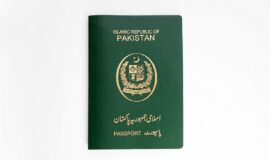
In an effort to boost tax collection from non-active taxpayers, the Federal Board of Revenue (FBR) has recently implemented significant changes to tax rates. As part of these revisions, the government has introduced various tax deductions and rates for cash withdrawals, motor vehicles, immovable property transactions, and payments to non-residents. In this blog post, we will break down these changes and their implications for both individuals and businesses in Pakistan.
Cash Withdrawals: To encourage more individuals to become active taxpayers, the FBR has eliminated the 0.6% tax deduction on cash withdrawals below Rs.50,000 per day for non-filers or those not on the Active Taxpayers List (ATL). However, for non-ATL individuals, the bank will deduct fixed amounts on cash withdrawals exceeding specific thresholds.
The bank imposes a tax deduction for non-ATL individuals when making cash withdrawals of certain amounts per day. For withdrawals of Rs.50,500, the deduction is Rs.303. The deduction increases with higher withdrawal amounts – Rs.330 for Rs.55,000 withdrawals and Rs.450 for Rs.75,000 withdrawals.
Motor Vehicle Taxes: The tax structure for motor vehicles with an engine capacity of 2001cc and above has been redefined in the Finance Act 2023. The tax rates for persons on the ATL will vary based on the engine capacity, ranging from 6% to 10% of the vehicle’s value. For non-ATL persons, these rates will be tripled, imposing higher taxes on the purchase of motor vehicles.
| ATL | Non-ATL | |
| 2001cc – 2500cc | 6% | 18% |
| 2501cc – 3000cc | 8% | 24% |
| 3001 and above | 10% | 30% |
The following cars will get affected the most:
- Toyota Land Cruiser Prado
- Toyota Coaster
- Hyundai Staria
- KIA Grand Carnival
- KIA Sorento
- Toyota Hilux Revo
- Toyota Fortuner
- Hyundai Porter
- Isuzu D-Max
- Hyundai Sonata (2.5)
- Toyota Camry
- Toyota Hilux
- Hyundai Santa Fe
Property Transactions: Withholding tax rates on the sale and purchase of immovable property have been increased from 2% to 3% for ATL individuals and 6% for non-ATL individuals. This change applies to anyone responsible for registering or attesting property transfers, as well as the withholding agent collecting taxes from the buyer.
Payments to Non-Residents: To curb unnecessary outflow of foreign exchange reserves, the FBR has raised the withholding tax rates on payments to non-residents via debit/credit cards. ATL persons will now be subject to a 5% tax, while non-ATL individuals will face a higher 10% tax. This measure aims to retain foreign exchange within the country and manage the balance of payments.
Advance Tax for Foreign Domestic Workers: A new section, 231C, has been introduced in the Finance Act 2023, requiring any Pakistan authority issuing or renewing domestic aide visas for foreign domestic workers to collect and deposit an advance tax of Rs200,000. This tax is adjustable and can be offset against tax liabilities assessed for the tax year. Employers, sponsors, or agencies should be aware of this tax obligation while hiring foreign domestic workers.
Duties & Taxes for Punjab Only
The Punjab government has introduced:
- A token tax of Rs.2,500 per seat on vehicles with 7 or more seats
- 3% booking duty on vehicles with engine capacity 1,500cc to 2,000cc
- 95% token tax exemption on EVs
Conclusion
The FBR’s recent tax reforms in Pakistan aim to increase tax collection and encourage more individuals to become active taxpayers. As taxpayers, it is essential to stay informed about these changes to avoid unexpected deductions and comply with the updated tax regulations. Seeking professional advice and understanding your tax liabilities will help you navigate these reforms efficiently and ensure a smoother tax journey.
You may also like to read:








Leave a Reply